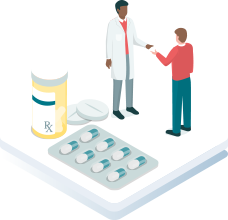
ABO typing
ABO typing involves testing the recipient’s red blood cells for the presence of A and B antigens using anti-A and anti-B antisera (forward grouping). Testing of the recipient plasma for the presence of anti-A and anti-B using known Type A and Type B red blood cells (reverse grouping) is also part of routine ABO blood group testing. Reverse grouping is not performed on infants under four months.

Rh typing
The Rh (D) type of the transfusion recipient is determined by testing recipient red blood cells with anti-D. A significant proportion of the population lack the Rh (D) antigen on their red blood cells. Eighty percent of Rh (D) negative recipients may develop antibodies to the D antigen if exposed to Rh (D) positive red blood cells. It is, therefore, preferable to provide Rh-negative (D negative) blood products to any Rh (D) negative individual.

Antibody screening
Alloantibodies to antigens that are not present on an individual's red blood cells may develop in anyone who has been exposed to foreign red blood cell antigens through pregnancy or transfusion. To detect antibodies to non- group A or B antigens, a sample of the patient's plasma or serum is tested against selected commercial Type O red blood cells that express the majority of clinically significant antigens, other than A and B.



